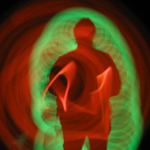In the wake of the New Iranian Revolution, will social media come under attack?
Perhaps it's obvious to say that there are political undercurrents at work in the Iranian Revolution 2009 we're witnessing, but it goes well beyond the streets of Tehran. This is a global phenomenon and it bodes ill for the Old Ways.
If you're reading this blog you're probably a little more savvy than most, but for those who are new to social media this coup attempt is shining a light on something certain elements within our political structure have tried to keep hidden: Iranians are just like us.
That might not seem like such a radical statement, but when you're in the business of demonizing people it's an earth-shattering revelation. Here in America, our government and our media have been in the business of demonizing Iran for the last 30 years. If the revolution succeeds and Ahmadinejad is thrown into the dustbin of history then our government will not have a despotic Iran to kick around any more. Early indications are that the people of Iran and Mousavi's hypothetical government will favor normalizing relations with America, or at least responding favorably to Obama's overtures.
You might think this would make the neocons very happy, but that is not the case. Blogger Andrew Sullivan has been on top of the revolution from the get-go and he says: "Even I am a little taken aback by the neocons' desire for an Ahmadinejad victory."
The sad truth is that a lot of people are scared of change and they don't like it when their favorite whipping-horse suddenly grabs the reins with his teeth.
Given the incredible impact that social media has had in this election/coup it should not be surprising if hardline forces --not just in Iran -- take a dim view of social media in the future.
The first thing the illegitimate Iranian government did when it saw trouble brewing was to block Facebook and Twitter. Cell phone service was taken down in many areas. Mousavi's website was taken out by government forces.
It's obvious why: Social media is an inherently democratizing force.
Allowing people to connect outside of traditional, controlled channels is dangerous for any repressive regime. People can share news instantly, they can plan, they can support each other and they can warn each other of danger. This used to be the province of the authorities with their rigid hierarchies, their walkie-talkies and their chains of command.
Now anybody with a cellphone can change the world with a hashtag.
I say again: Iranians are just like us. They love Facebook and have a Mousavi fan page with 50,000 supporters. They have been using Twitter (and Twitpic) extensively. (Check out this page for a list of English language Iranian twitterers). And videos depicting the mostly-peaceful marches today are already showing up on YouTube:
As night falls things are getting more violent. It's too early to declare victory, but I think the world is starting to see that the divisions our mainstream media has helped our government create are largely an artifice of ignorance and omission. We are all the same on Facebook. We are one on Twitter.
Social media is the bane of dictators everywhere, and I wouldn't have it any other way. But we have to be ready for the backlash against social media by those hardline forces stuck in the past. They may start to attack social media out of fear. We can't let those repressive forces have their say anymore. If Iran can stand up for democracy, we can too.
If you're reading this blog you're probably a little more savvy than most, but for those who are new to social media this coup attempt is shining a light on something certain elements within our political structure have tried to keep hidden: Iranians are just like us.
That might not seem like such a radical statement, but when you're in the business of demonizing people it's an earth-shattering revelation. Here in America, our government and our media have been in the business of demonizing Iran for the last 30 years. If the revolution succeeds and Ahmadinejad is thrown into the dustbin of history then our government will not have a despotic Iran to kick around any more. Early indications are that the people of Iran and Mousavi's hypothetical government will favor normalizing relations with America, or at least responding favorably to Obama's overtures.
You might think this would make the neocons very happy, but that is not the case. Blogger Andrew Sullivan has been on top of the revolution from the get-go and he says: "Even I am a little taken aback by the neocons' desire for an Ahmadinejad victory."
The sad truth is that a lot of people are scared of change and they don't like it when their favorite whipping-horse suddenly grabs the reins with his teeth.
Given the incredible impact that social media has had in this election/coup it should not be surprising if hardline forces --not just in Iran -- take a dim view of social media in the future.
The first thing the illegitimate Iranian government did when it saw trouble brewing was to block Facebook and Twitter. Cell phone service was taken down in many areas. Mousavi's website was taken out by government forces.
It's obvious why: Social media is an inherently democratizing force.
Allowing people to connect outside of traditional, controlled channels is dangerous for any repressive regime. People can share news instantly, they can plan, they can support each other and they can warn each other of danger. This used to be the province of the authorities with their rigid hierarchies, their walkie-talkies and their chains of command.
Now anybody with a cellphone can change the world with a hashtag.
I say again: Iranians are just like us. They love Facebook and have a Mousavi fan page with 50,000 supporters. They have been using Twitter (and Twitpic) extensively. (Check out this page for a list of English language Iranian twitterers). And videos depicting the mostly-peaceful marches today are already showing up on YouTube:
As night falls things are getting more violent. It's too early to declare victory, but I think the world is starting to see that the divisions our mainstream media has helped our government create are largely an artifice of ignorance and omission. We are all the same on Facebook. We are one on Twitter.
Social media is the bane of dictators everywhere, and I wouldn't have it any other way. But we have to be ready for the backlash against social media by those hardline forces stuck in the past. They may start to attack social media out of fear. We can't let those repressive forces have their say anymore. If Iran can stand up for democracy, we can too.
Labels: facebook, fud, fundamentalism, iran, neocons, Obama, protest, social media, twitter, videos




1 sick little monkeys said:
This is amazing, absolutely amazing. If I was there I would be screaming and rallying with them. Was that a police man who they were helping? People who work against them?
Some Christians would demonize those people, but they act out what Jesus preached better than most people over here I have seen who claim to be religious.
Post a Comment
Home